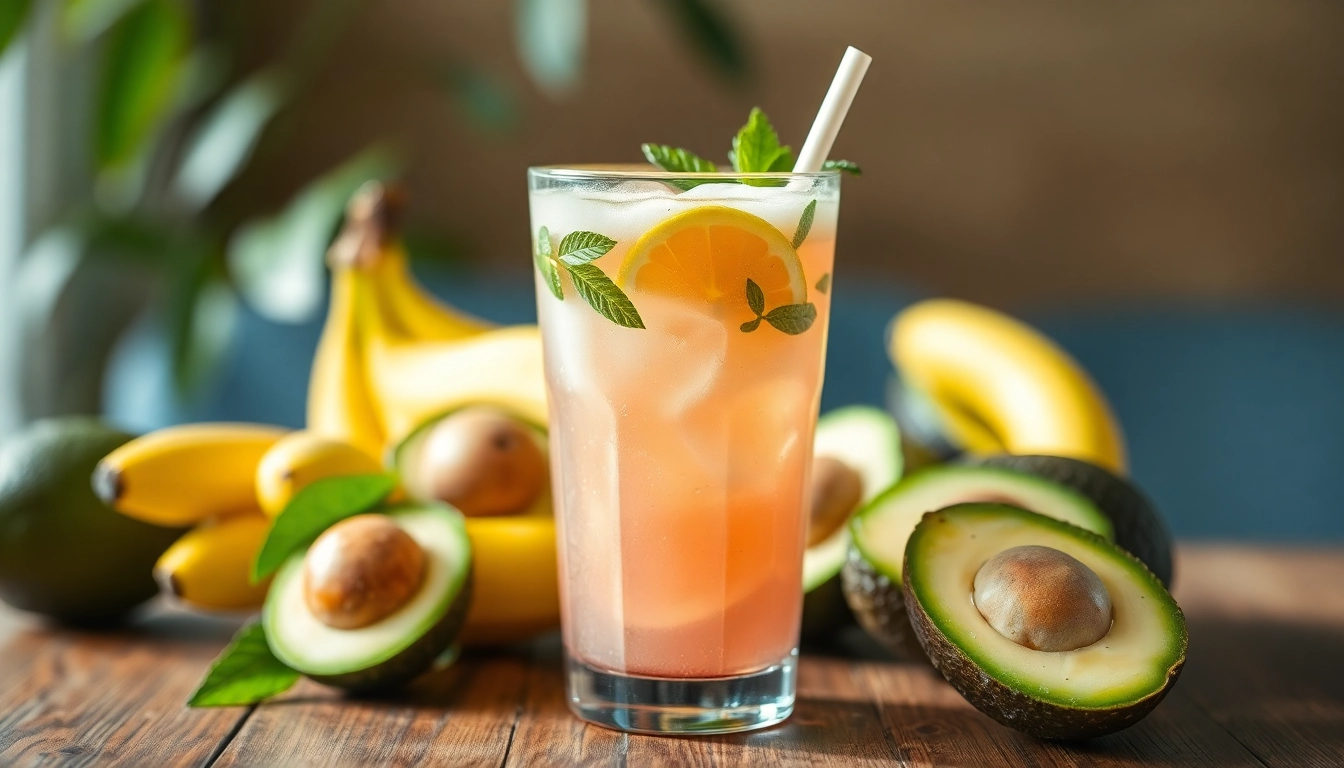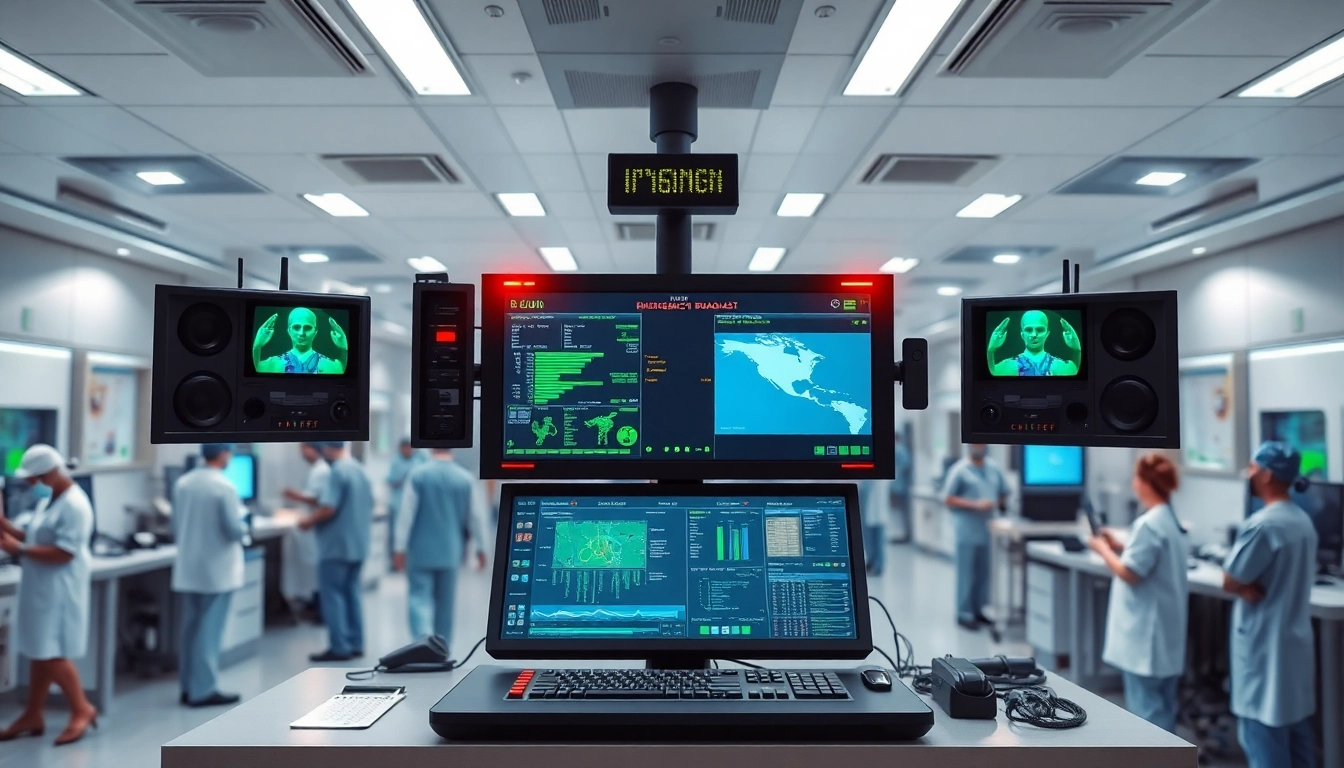What Are Electrolytes and Why Are They Important?
Electrolytes are essential minerals found in your blood and other bodily fluids that carry an electric charge. They play a critical role in various physiological functions, including regulating hydration, blood pH, and nerve and muscle function. In essence, electrolytes are fundamental for sustaining life. This article delves deep into the significance of electrolytes, their sources, methods of identification for imbalances, and their relationship with exercise.
Definition and Functions of Electrolytes
Electrolytes consist of minerals such as sodium, potassium, calcium, bicarbonate, magnesium, chloride, and phosphate. When dissolved in water, they dissociate into ions, enabling electrical impulses to travel throughout the body. Their primary functions include:
- Regulating Fluid Balance: Electrolytes help maintain proper fluid levels in and around cells, organs, and body compartments.
- Supporting Nerve Function: They are crucial for nerve impulses, helping transmit signals from the brain to other body parts.
- Affecting Muscle Function: Electrolytes facilitate muscle contractions and relaxation, essential for movement and physical performance.
- Maintaining Acid-Base Balance: They assist in controlling the body’s acidity or alkalinity, which is vital for enzymatic reactions and metabolic processes.
How Electrolytes Affect Your Body
The balance of electrolytes in the body is crucial for efficient functioning. An imbalance can interfere with muscle contractions, nerve signaling, and hydration, leading to various health complications, ranging from fatigue to severe neurological disorders. Maintaining optimal electrolyte levels supports overall health and helps prevent potential medical issues.
Common Electrolytes and Their Roles
Several key electrolytes serve critical functions in the body:
- Sodium: Primarily affects fluid balance and is vital for nerve and muscle function.
- Potassium: Helps regulate heart beats, muscle contractions, and nerve signals.
- Calcium: Integral for bone health, muscle contraction, and nerve signalling.
- Magnesium: Plays a role in over 300 enzymatic reactions, it is crucial for muscle and nerve function.
- Chloride: Works with sodium to maintain fluid balance and plays a role in digestion.
Sources of Electrolytes: Foods and Supplements
Electrolytes can be sourced from various foods, drinks, and supplements. Ensuring an adequate intake is vital for maintaining overall health and wellness.
Top Foods Rich in Essential Electrolytes
Many everyday foods are excellent sources of electrolytes, making it convenient for individuals to meet their daily requirements. Here’s a list of foods rich in essential electrolytes:
- Fruits: Bananas, oranges, and avocados are high in potassium.
- Vegetables: Spinach, beets, and sweet potatoes are abundant in magnesium and potassium.
- Dairy Products: Milk and yogurt provide calcium and magnesium.
- Seafood: Salmon and tuna are excellent for potassium as well as omega-3 fatty acids.
- Legumes: Beans and lentils are good sources of magnesium and potassium.
Electrolyte Supplements: Pros and Cons
For those who struggle to meet their electrolytic needs through diet alone, supplements can be an effective option. However, it is essential to weigh the pros and cons:
- Pros:
- Convenient for those with dietary restrictions or elevated needs (e.g., athletes).
- Can quickly restore electrolyte balance in cases of dehydration or electrolyte loss due to illness.
- Cons:
- Over-supplementation can lead to imbalances and adverse health effects.
- Some supplements may contain added sugars or artificial ingredients, which may not be suitable for everyone.
Hydration and Electrolyte Drinks
Electrolyte drinks can be beneficial for rehydration, especially during intense physical activity or after prolonged exposure to heat. These drinks often contain a blend of salts and sugars to replenish lost electrolytes effectively. Popular options include:
- Coconut Water: A natural source of electrolytes with low calories and sugar.
- Sports Drinks: Typically higher in sugar, these drinks are formulated to restore electrolytes lost during exercise. Be cautious of sugar content and opt for low-sugar options when possible.
- Homemade Electrolyte Drinks: Mixing water with natural sources such as lemon juice, a pinch of salt, and honey can offer an effective and low-cost alternative.
Identifying Electrolyte Imbalances
Recognizing an electrolyte imbalance is essential for effective management and treatment. Symptoms can vary widely depending on the specific electrolyte affected.
Symptoms of Electrolyte Deficiencies
The symptoms of electrolyte deficiencies can range from mild to severe, depending on the degree of the imbalance and the specific electrolytes involved. Common symptoms include:
- Muscle cramps and spasms
- Fatigue and weakness
- Nausea or vomiting
- Confusion and mood changes
- Heart palpitations
Causes of Electrolyte Imbalances
Several factors can contribute to electrolyte imbalances, including:
- Dehydration: Excessive sweating, vomiting, or diarrhea can lead to significant electrolyte loss.
- Dietary Deficiencies: A lack of nutrient-rich foods can result in insufficient electrolyte intake.
- Medical Conditions: Chronic illnesses like kidney disease, diabetes, or hormonal disorders can disrupt electrolyte levels.
- Medications: Certain medications, particularly diuretics, can further exacerbate electrolyte loss.
Diagnosis and Testing
Healthcare professionals typically utilize blood tests to measure electrolyte concentrations in the body. Tests may include:
- Serum Electrolyte Panel: Measures levels of sodium, potassium, bicarbonate, and chloride.
- Urine Electrolyte Testing: Can provide further insight into kidney function and electrolyte handling.
Managing and Correcting Electrolyte Levels
Once electrolyte imbalances are identified, timely intervention is crucial. Here are methods for managing and correcting these levels effectively.
Home Remedies and Dietary Adjustments
In many cases, electrolyte imbalances can be easily corrected with dietary changes and home remedies. Some suggestions include:
- Increase Hydration: Ensure adequate fluid intake, particularly water and electrolyte-rich beverages.
- Incorporate Foods: Adding foods rich in specific electrolytes can help. For example, bananas for potassium and dairy for calcium.
- Use Natural Supplements: Consider natural electrolyte supplements that are free from artificial additives.
Medical Treatments for Severe Imbalances
In cases of severe deficiencies or significant medical conditions, professional medical treatment may be necessary:
- Intravenous (IV) Fluids: Administered in a clinical setting to quickly restore electrolyte balance.
- Medications: Prescribed to manage chronic conditions that affect electrolyte levels.
Preventing Electrolyte Imbalances
Prevention is often the most effective strategy for managing electrolyte levels. Consider these proactive measures:
- Maintain a balanced diet rich in fruits, vegetables, whole grains, and lean proteins.
- Stay hydrated, adjusting fluid intake according to activity levels and environmental conditions.
- Regularly monitor any chronic health conditions that influence electrolyte levels.
The Impact of Exercise on Electrolyte Needs
Physical activity significantly affects electrolyte levels due to sweating and increased metabolic activity. Understanding these dynamics is essential for athletes and active individuals.
How Exercise Affects Electrolyte Levels
During exercise, the body loses electrolytes primarily through sweat. The composition of sweat varies among individuals but generally includes sodium, chloride, and potassium. Intense or prolonged exercise can substantially deplete these electrolytes, leading to imbalances and affecting performance.
Electrolyte Intake for Athletes
Adequate electrolyte intake is vital for athletes to sustain performance and optimize recovery. Recommendations include:
- Monitor Sweat Loss: Athletes should consider weighing themselves before and after exercise to determine fluid loss and adjust hydration accordingly.
- Utilize Electrolyte Drinks: Consuming drinks with a balanced ratio of electrolytes can help replenish losses during or after extended workouts.
- Consider Individual Needs: Different sports and individuals may require tailored electrolyte guidelines depending on their sweat rate and dietary habits.
Best Practices for Replenishing Electrolytes During Exercise
To effectively replenish electrolytes during physical activity, consider the following best practices:
- Start your exercise hydrated, preloading with electrolyte-rich fluids if necessary.
- Consume small sips of electrolyte beverages throughout longer workouts rather than waiting until you are thirsty.
- Post-exercise, engage in recovery strategies that include rehydrating with both water and electrolytes to support recovery.


